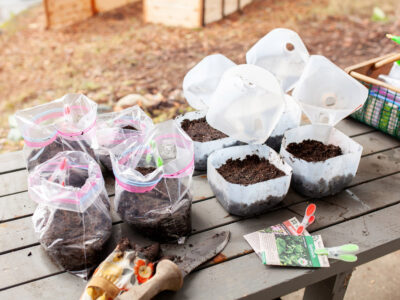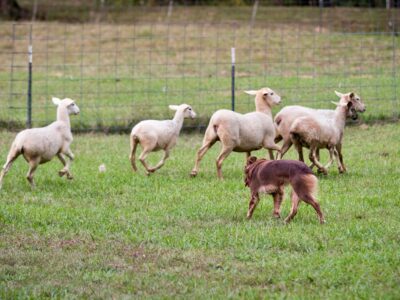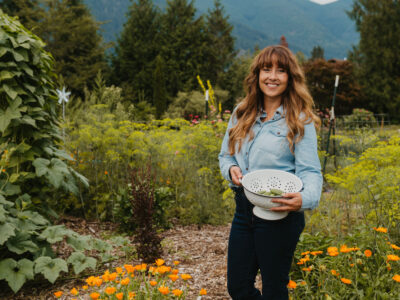Raised bed gardening tips for vegetable gardening. Raised beds are beloved by many a gardener but aren’t for every garden or situation. Like any type of garden bed, they have their pros and cons and tips to consider if they’re right for your garden.
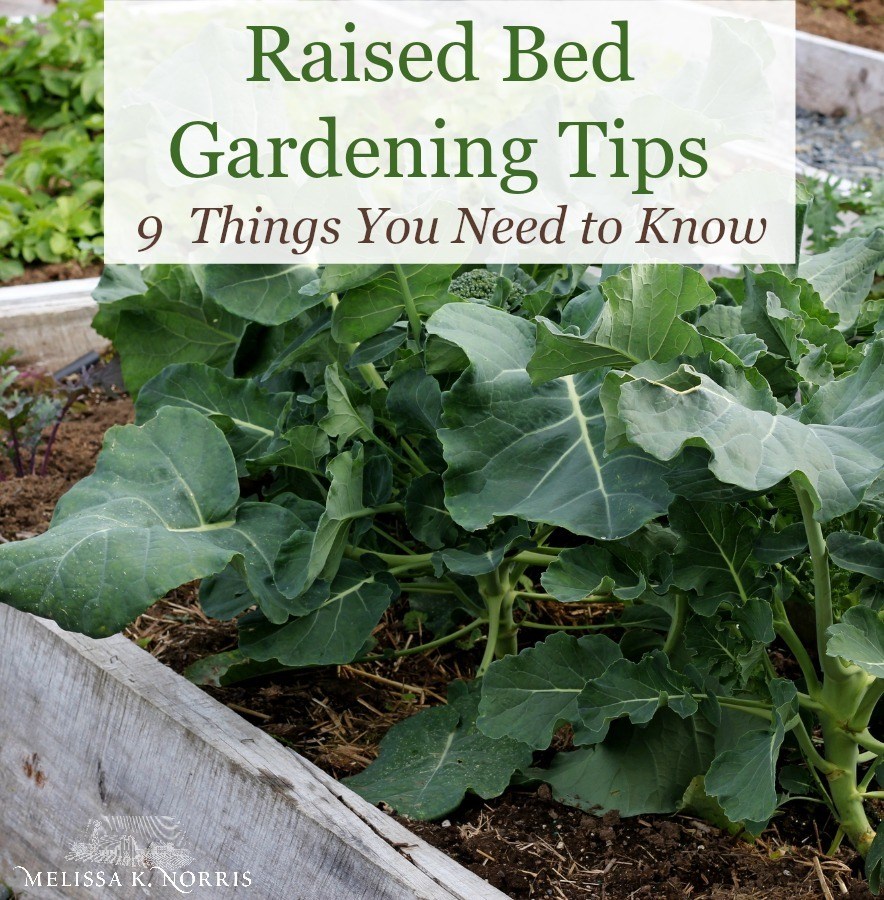
Listen in below to the full podcast, Episode #204 Raised Bed Gardening Tips, of the Pioneering Today Podcast, where we don’t just inspire you, but give you the clear steps to create the homegrown garden, pantry, kitchen and life you want for your family and homestead.
Table of Contents[Hide][Show]
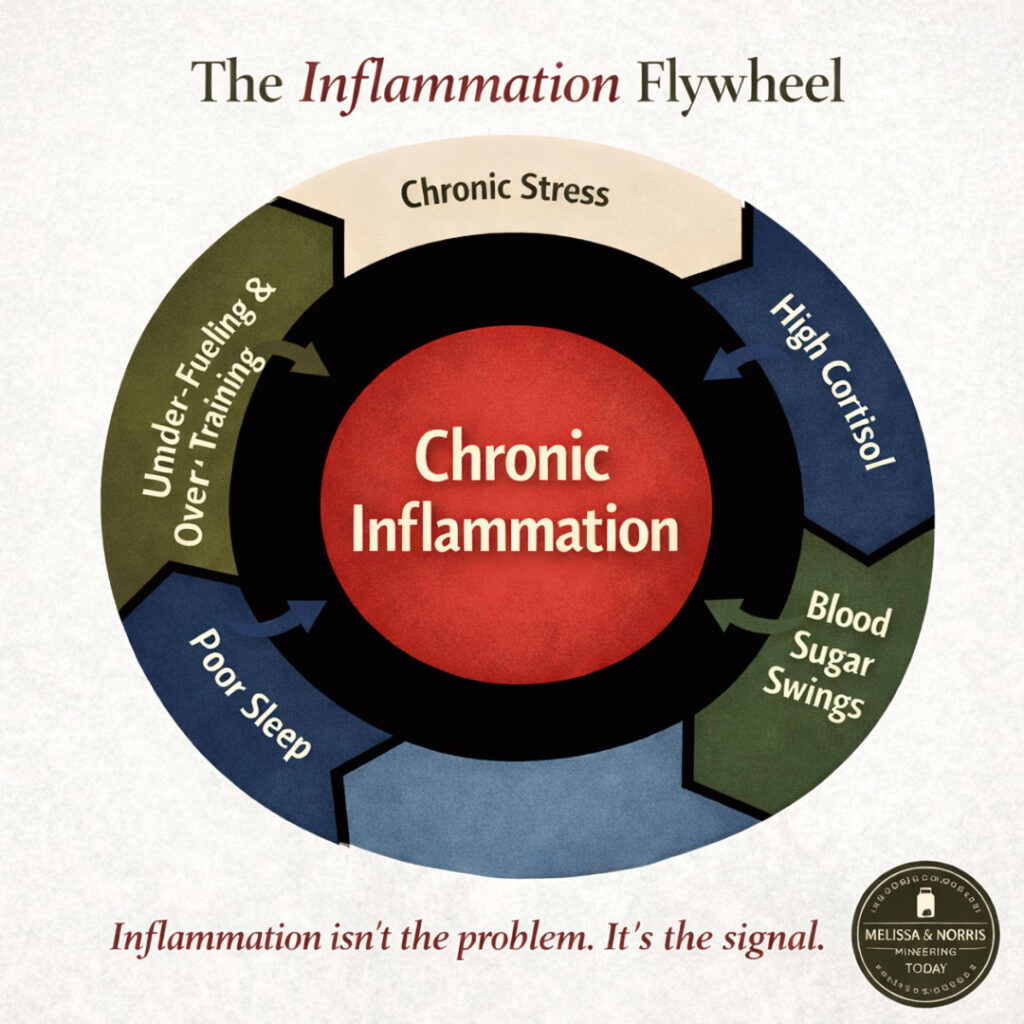
The Hidden Cycle Keeping You Inflamed
If you’ve been feeling puffy, tired, achy, or wired-but-tired, this two-page guide will help you understand what may be happening behind the scenes — even if you’re eating “healthy.”
Download the Inflammation Flywheel Guide and learn:
- Where to start so you don’t feel overwhelmed
- The 5 most common drivers that keep inflammation switched on
- Why blood sugar swings, stress, and poor sleep feed each other
Raised Bed Vegetable Gardening for Beginners
Melissa: First, let’s define what we mean by raised bed gardening. A lot of people will use container beds and raised bed gardening intermittently. When you’re talking about raised bed gardening are you talking about bringing in new soil where it’s completely enclosed in a container or is the soil you’re putting in the raised bed still going down into the ground without a barrier?
Jill: Well, the answer could be both. When I think of a container garden, I’m thinking of something that is sitting on rocks or it’s even very tall. But the raised beds that I’m talking about is more where you’re sitting the frame of some sort on the actual ground where it’s not completely enclosed, where the roots of the plants do have a chance to be able to grow down into the actual soil underneath. That’s what I have more experience with.
M: Okay, good. That’s exactly the way I talk about it. I’ve seen the term loosely used and sometimes people will refer to what I consider a container garden, which is where the plant doesn’t get to touch the natural ground because there’s a barrier of that container. So I just wanted to make sure that we were talking about the same thing.
So with raised beds, what do you feel is the benefit of doing a raised bed rather than just using the ground?
Benefits of Raised Bed Gardening
Soil Control
J: That is such a good question, and I can tell you because I do both. I feel like I can tell you observationally the benefits of both methods and there are so many benefits to raised beds. That’s why I keep adding more to my garden each year. But I think the biggest benefit is that you can control your soil better because you can control what in that space and control it quicker. I’m doing that in my ground beds but it’s taking years. If you want to be able to have a more productive harvest quicker, especially if you don’t have the idea ground to start with, then a raised bed would be perfect.
Another thing is that there’s no compaction. If you’re building your raised beds at the proper dimensions, you’re not walking on that ground. And, as I’m learning, the more compacted soil becomes with our walking on it, the less healthy it is. It needs the oxygen, that aeration, for a lot of the microbiology in the soil to work well. You don’t have that compaction because your not standing on the soil.
Better Watering and Amendment Management
Also, you can get the water directly to the plants when watering, whereas you don’t want to water the pathways, or the weeds. You can get the water, fertilizers, everything that you want to use directly to the plants and be more efficient that way. I think the biggest benefit for me, just from observing my own garden, is that I get a great yield per plant when I’m using raised beds compared to my in-ground soil. Like I said, that does depend on what kind of in-ground soil your working with, but I personally get a better yield through growing in my raised beds.
When and Why Should You Consider Putting in a Raised Bed?
M: Okay. I think right here is the distinction for me because I have tried raised beds in the past and when you’re doing a raised bed there is a little bit of an added expense because you’re going to have to have some sort of barrier when the soil depth is going to be more than 4 to 6 inches to hold the soil in place. . The barrier can be rocks or boards, just all sorts of different materials that can be used based on what you have on hand and what is in your budget.
We’re really blessed where I live in the Pacific Northwest up in the foothills. We just naturally have really good soil. I do add compost and some different fertilizers based on what’s available from my livestock. So, chicken manure, sometimes manure from cattle and that type of stuff at different times of the year. But our soil is really great. It’s really loamy, has good aeration. So I think for me, because I don’t have to do a ton of work to it and I get a good yield from it since it’s not super sandy and we don’t have a lot of clay, I felt it wasn’t worth the pay off. Especially given the extra work and expense to do them.
I’m glad we talked about that because I think it’s a good distinction in knowing what soil you have what what you’re working with, what your native soil is and then deciding which type of best is going to be best for you to get the best yield right off the bat. Thank you for walking us through that.
J: In addition to knowing what kind of soil you have knowing your climate is another consideration. We have gotten a lot of rain this year and last year, and I know you get a lot of rain too. Like I said, you may have had perfect soil that can handle that, but sometimes, like our soil having such clay contact gets so saturated. Our plants have trouble not drowning. So if you live in a place where you have so much rain, the raised bed could help with that because it helps with better drainage.
But then on the opposite, if you live in a drought prone area and you don’t need that, that water evaporating or draining so quickly raised beds might not work so well for you. So I think it depends on your environment as far as rainfall.
M: Yeah, I agree. I think it’s important to note too that usually, even with gardening, that not everything works the same way for everybody. And oftentimes, like you’re doing both raised bed and in ground gardening and I have a large portion in ground but I do some container gardening, but it’s usually a combination of different types. So I try to stay away from absolutes. Like some people swear the only way to garden and to get a good yield raised beds is the way to go. But as you said, it really depends on your climate, your soil, and other things to consider. I think raised beds are a great thing to consider and oftentimes make a lot of sense, but it’s not a blanket statement that they will work for everyone.
So I’m really glad that were diving in to this and I feel like I’m more highlighting the cons just because they haven’t produced the best for me in our area and with our climate. But they’ve done really well for you. I think this is great because we’re really coming at it from both sides so that people can really get a good picture of when it’s appropriate to use them where they live and when it might not be the best option.
J: Yeah, I definitely agree with that.
Additional Benefits
M: We’ve definitely talked about looking at your soil conditions, your climate conditions and that type of thing. We’ve also covered some of the benefits, as you mentioned which was not compacting the soil, easier more focused watering. What do you feel are some other benefits of putting in a raised bed?
Fewer Weeds?
J: I think you can look at your lifestyle. I know the audience is mostly homesteaders and homesteaders may have more time, so to speak, than someone who’s trying to tackle and squeeze it into their already busy schedule. Not to say that homesteaders aren’t busy, obviously we always are. But if someone’s starting with a brand new garden and they just want something little that they can tackle, I have found that the general maintenance and the upkeep of the raised bed is so much less.
Especially if you’re good at keeping mulch on the raised bed. The weeding is very, very minimal. In general, the upkeep of a raised bed is less work than the upkeep of my ground beds. And speaking of time, like I mentioned about the beginning gardener who might not have a lot of time, homesteaders that do a lot of canning and preserving and other activities, might need the extra time for those other activities such as preserving and all of that. So it does reduce my gardening time because my raised beds do not require near what my ground beds do in terms of weeding and maintenance.
M: So I have to ask you, how many years have your had your raised beds? How long have you had the oldest one in?
J: Well, I told you that I have been gardening for seven years. Well, the year before that my husband built two raised beds because he was the one who wanted to start growing things. I wanted nothing to do with it. But those two raised beds we still have. So that’s their eighth year and we’ve actually moved them too, and they’re still doing great. So technically I guess eight seasons.
M: The reason that I asked that is because we did a large raised bed and I know that there was a few issues with that raised bed. Our raised bed was located in the front middle of our yard that we put in when we first moved onto our homestead, about 12 years ago. The first couple years with that raised bed, I felt like the maintenance was less, that there was less weeding, it was less work. All the things that people love about raised beds: it sat at that increased height (this is helpful for those who bending over is a problem or have trouble getting down to ground level).
But over time, and I did keep it mulched with wood chips, I felt like the weeds became the same amount as other gardens that I had where I had mulch on them. I really didn’t feel like the weeds were any less. After about three or four years, I felt it was the same level of weeds. So when people say they have less weeks, I wonder if I was doing something wrong. So that’s why I was asking how many years you had your oldest raised bed because I didn’t experience really less weeds after a certain amount of years had gone by than I did with my in ground beds. But you’ve had yours in for quite a few years. Maybe I’m a special case when it comes to raised beds.
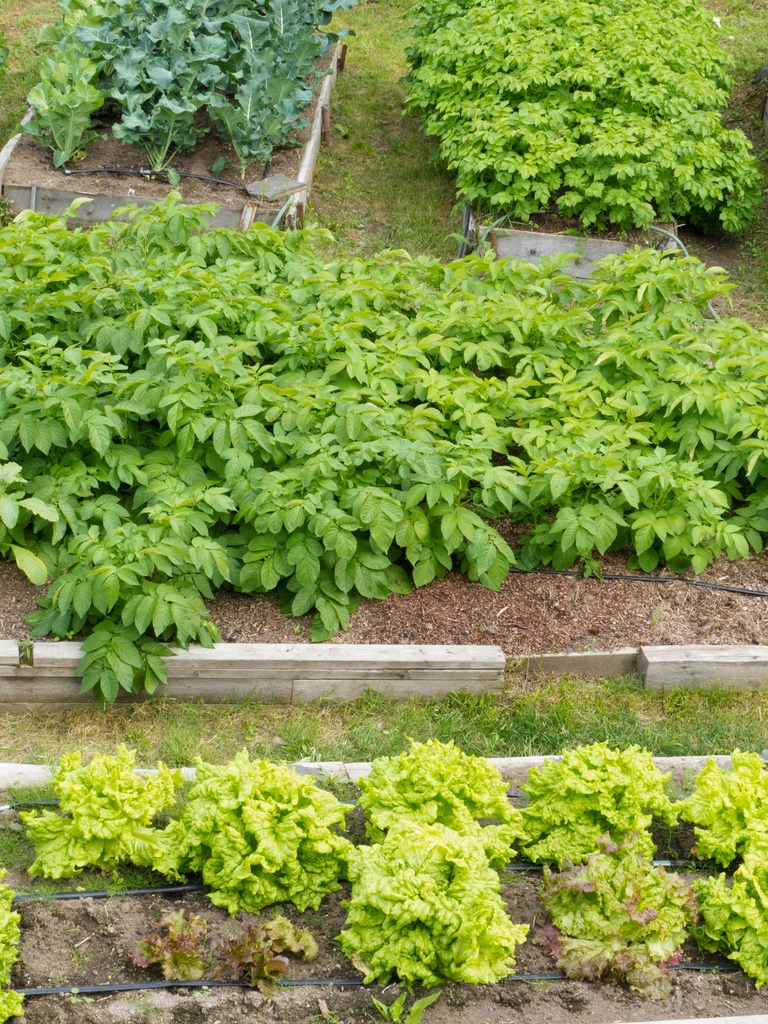
Controlling Weeds
J: I can’t say that they all have been wonderful. In fact, I just completely cleared out one of my raised beds that got overrun with Bermuda grass. That was because the native soil that I put in, it was from a place that apparently had lot of Bermuda grass. I think a lot depends on the soil you are starting with. Are you starting with a native soil that might have weed seeds already in it. But I have found with my raised beds that if I can keep it mulched and then, if I can, I’ve also started doing some cover crops that has also choked out the weeds. I think that helps, but I do think what kind of soil you start out with does make a big difference on if some of those perennial weeds and grasses end up showing back up in the raised bed.
M: Yeah, I would agree. We used the same soil that we had, like our native soil, when we did the raised bed and then put the mulch on it. So, of course, that’s why I’m sure the weeds felt that they were the same amount as in our regular in-ground bed that had mulch because it was the same soil and same situation. So I think that’s a great point.
In your presentation within the Organic Gardening Workshop, you really dive into talking about the soil and how important that is and the different ways that you can ensure that your’e using good soil to avoid a lot of problems that were talking about here. So I think that’s a really important thing to note when putting in a raised bed.
Cover crops and mulch do help cut down weeds, both in raised beds and regular in-ground gardening just because birds and then the air that’s carrying seeds, such as dandelions. They land on top of the mulch and don’t have a good chance of getting down to the actual ground to sprout and take root. So mulching definitely helps, no matter what type of bed your doing.
J: Absolutely.
Location, Location, Location
M: One thing I wanted to ask though, because I think this is going to be important when deciding where to put your raised beds, is why did you move those two raised beds that you initially put in? Was it because they were in an improper place where you decided you needed to put some type of infrastructure?
J: So this is a lesson in knowing your land. That very first season, my husband had put those two raised beds in place very close to our house and I had planned my entire garden to be an extension of where those raised beds were, both with adding new raised beds and using the soil near that. But what I found out that first year is that that was the lowest place on our property. And our ground that spring was saturated and nothing would grow. About maybe April or May, we decided to completely scrap it. Well, I still tried to grow in it but it didn’t work very well. My husband took a tiller to an opposite side of the property and tilled that up so that my dreams weren’t dashed. And we grew a garden in that area.
Because of this my garden was basically fragmented. I had one area close to my house and another on another side of the property. Maintaining both of those areas just became too much. Also, those raised beds weren’t protected. My husband ended up building a fence around my new garden area and I just decided it would be easier to move them, which I don’t necessarily recommend. We did have to do some repairs to that because they were old. But we decided to move them all into the protected area of the fence, both for protection against wildlife, but also just for ease of watering and maintenance to be able to maintain it all in one place. So that’s the long answer to a very short question as to why we moved them.
M: But it’s important and I’m glad that we talked about it because evaluating your property and knowing your micro climates are within your property. Don’t worry, we have a full in-depth video that inside the Organic Gardening Workshop that you’ll be able to watch during the free preview period. It is super important to know how the water drains on your property and those areas so that you don’t have to move them.
We made this mistake of not paying attention to proper location when we first planted our mini orchard. We planted the bare root trees at the end of winter, like super early spring before all of our maples and some of our alders had leafed out. So at the time of planting they were getting a full six plus hours of sunlight, albeit weak sunlight cause it was wintertime, but I didn’t really look at the way the sun would change int he summer time and the direction it would come from nor did I think about all of the trees being leafed out.
So we ended up moving our mini orchard that we had planted. We had to move them the following year because during the summer months they were in shade the whole time and they were never going to grow well or the fruit wouldn’t be able to ripen on them. That was a good lesson for me to learn early on but had I known how to properly evaluate my land and to look at things, I could have avoided that. Fortunately they all survived, but moving them set us back a year on fruit production just because the roots had to completely reestablish themselves.
So that’s a great point, definitely know ahead of time the low and high areas. If you’re in a drought area, you don’t want your raised beds on top of an area that’s already high and so any rain that you’d get would run off.
Dealing With Critters
Do you have it fenced for deer or other critters?
J: We have deer and rabbits and the rabbits have been the worst. I shouldn’t say this out loud, but is year we finally figured out something that would keep the rabbits out because they kept figuring out a way to get around what we had done previously. But we do have lots of deer. They’ve never gotten in the garden since we built the fence. The fence was initially built to keep the deer out, then the rabbits too.
M: Now I have to ask because you said it, what’s working for you to keep the rabbits out?
J: Well, my husband is very good at coming up with infrastructure. He doesn’t touch my garden, but when it comes to things like infrastructure, he does really good. He ended up doing the bottom layer of the fence in rabbit fencing. Then above that he has two electric fence lines. So the electric lines are to protect from deer and the rabbit fence protects against the rabbits.
M: I sometimes feel so bad because we have to live in a little pocket; we don’t have any wild rabbits and we don’t deal with squirrels. Sometimes I feel bad for saying that because I know so many people battle with that. Now, we do have a lot of deer, gophers, mice and other critters that are not friendly to the garden and can be a pain, but we don’t have to deal with rabbits.
I’m glad to hear that the rabbit fencing is is keeping them out. So, Yay!, you guys get a harvest and not the rabbits and deer. I don’t mind sharing but only when I want to share with them, not when they come in and make a buffet of it.
J: Especially when it’s the seedlings because that was just setting my whole garden back when they would come and eat my bean seedlings. In fact, I planted your pole beans and they would take them all and I didn’t have any more seed and so I didn’t get to grow any in my garden. I was so mad at them.
M: I’ll have to send you another set.
Which Crops to Grow in Raised Beds
What do you feel are crops that are better suited to raised beds and what crops do you then select to put into your regular in-ground garden?
J: I’ll tell you what I do, but That’s a really hard question because there aren’t many crops that I have found don’t do well in raised beds. Almost all of them do. There are some that I still prefer to grow in the ground, but that doesn’t mean you can’t grow them in raided beds.
But to answer your question simply, what I love growing in raised beds are tomatoes, mainly my romas. I like growing those in raised beds more, whereas my indeterminate ones that grow a lot taller, I tend to put those in the ground, but that’s just a personal preference because of spacing issues and how I stake them and all that. Peppers grow really well in raised beds. I think part of that is because the soil does warm up quicker and peppers love the heat, so they do really well.
Squash does well. I think part of that is because I can make sure the soil fertility is really good with squash. I’ve also had good results with broccoli in the fall, and then carrots, onions, of course, all of my garlic goes into raised beds because we have that clay soil and it does better for me. That may be something for more Northern growers to consider because raised beds do tend to be a bit cooler micro climate in the winter time. If you’re worried about them freezing, that might be something to just look up or talk to someone local to see if you could grow garlic in raised beds. Lettuce, greens and spinach all are perfect choices for raised beds. They do really well for me.
The crops that I tend to plant in the ground are going to be my crops that take a lot more space that I don’t want to waste in my raised beds. For example, corn. I like to grow a lot of corn. Last year I did test growing corn in a four by eight raised bed and it worked well, It didn’t get quite the pollination rate that I get when I do a big planting in my ground beds. So it can be done if you want to use an entire bed for corn. I don’t know many people that want to do that for just one crop, but it can be done.
Then other crops like black-eyed peas or shelled peas where you need a lot of them to be able to make a harvest worth it. I tend to put those in the ground. I also do my melons in ground just because I let them sprawl. I’m thinking of doing a vertical thing for the first time next year with melons. I just haven’t done it yet.
Considerations for Your Climate
M: I’m glad you brought up that point about the raised beds being cooler during winter time. Conversely, in the early spring they warm up faster. So in the early spring that is a benefit because things germinate faster than what’s planted in ground. But when you get to middle of summer, like you said, they do get hotter and can dry out faster. So putting in warm weather crops like peppers and basil that really like heat will do really well. Some of those other cool weather crops might not do so well in the heat of summer in the raised beds.
It depends on the timing too. If you do some spring gardening and fall gardening you can look at them for that aspect. I’ll speak to our area. I’m pretty much a garden zone six which means we usually get our first frost mid-September. If we’re really lucky it’s the first of October for that hard killing frost. Usually in the winter we’ll get down into single digits for a couple weeks during the day but definitely overnight. So we have a lot of fluctuation in our temperatures here. Even in the winter months; like we’ll have 40 degree days and all of a sudden we’ll get some cold spells. Then we’ll be in the teens and even single digits. Then three days later back up to 40. So big swings.
I’ve done garlic in a raised bed and it’s done well because the drainage is good. I’ve also done it in the ground. Those in a northern climate will definitively want to consider whether a planting garlic in a raised bed or even a container because it will freeze more. You’ll want to mulch it more than you would if it were planted in the ground. You also want to consider if it’s in a protected space. So again, this is kind of that micro climate aspect. We had ours tucked up against the house which acted as a wind block and also provided some radiant heat keeping it a bit warmer during the winter months.
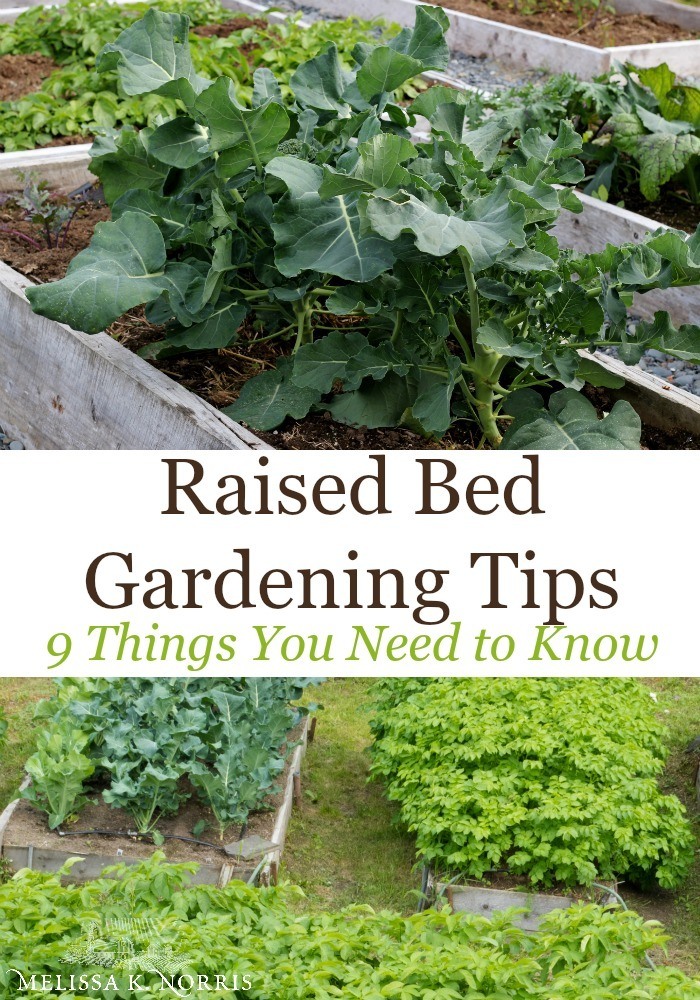
Keeping this in mind, if you’re wanting to do some of winter crops in raised beds and you are in a colder climate, if you put the raised beds in a more protected location you’ll have a little bit better success. At least, we did with our garlic when we grew it that way.
Experiment To Determine What Works Best
J: I think it’s important too to test it. If you have the ability to do a hybrid model just test it to see what happens. Like last year with my broccoli, I planted some in a raised bed and some right beside it in the ground. In my experience, the ones in the raised beds formed much bigger heads and harvested them quicker than the ones in the ground. And, who knows, I mean, I have some ideas of why that was the case, but I think it’s good to test and see what crops do better in raised beds in your climate and what might do better in the ground.
M: I love that you did that. I am such a geek about garden testing right now. I’m testing half of my vegetable garden by doing the full wood chip method and then the other half I have how we normally have done it with the addition of composting and sheet composting in the fall and cover crops and that type of thing. It’s going to be a year or a couple years experiment. I do love doing those experiments especially when you do half the crop one way and half the other because then you know it wasn’t the weather because they obviously experienced the same type of weather.
Do you feel like it had the same nutrients for the soil? Like had you amended the soil the same way in both the in ground and raised bed?
J: That’s really hard to say and that is one thing that I kept thinking in my mind. The location where I grew the broccoli in the raised bed, that had some really rich soil to it because I had grown the best tomato harvest ever right before that. It might have been very, very highly fertile soil. But the area that I grew in the ground, that’s one of my most fertile ground areas I think. The difference may have been the clay content, which I’m still working on amending and reducing the compaction. I think that probably had more to do with it rather than the fertility, but it’s a conjecture at this point. Sometimes you never know the why behind it, but it’s still fun. Like you said, just to test and see what you find.
M: Yeah, and then there’s the results, right? If you’re getting it sooner and your getting a larger harvest from it, then obviously you’re going to stick with what works because the results just speak for themselves. I’m a results based person so if the results are good then obviously that’s the way I’m going to do it next year. I love that you were doing that testing. I do think it’s so important to test in your own garden as well.
There’s nothing like testing it for yourself in your own garden, in your own growing conditions, and seeing what works best. The great thing is that every single year your going to know more and more and more for your particular area and your soil in your gardening season, what works best for you and what doesn’t.
Thank you Jill for sharing what works well for you.
You can find Jill at her website, journeywithjill.net, and her podcast, Beginner’s Garden Podcast. She has a fabulous presentation inside the Organic Gardening Workshop. It’s all on raised beds and she goes so much more in-depth and has so much amazing information. So if you are considering doing raised beds, you want to make sure you jump in there and watch the episode.
I hope that you found this post helpful. As you can see, knowing your micro climates and proper garden placement is important not just to raised bed gardening but to gardening in general. If you want to learn more about organic gardening sign up for my Organic Gardening Workshop! This is a workshop where I’m giving tons of tips, and you do not want to miss it!
More Gardening Tips:
- Small Space Vegetable Gardening Urban Gardening Tips
- Hot Climate Gardening Tips
- Spring Gardening Tips to Increase Harvest Yield
- Grow More Food Next Year w/ These 5 Fall Gardening Tips
- Fall Gardening Prep 11 Tips to Improve Your Soil
- 3 Tips for Planning Gardening Success in Winter
- Time Saving Gardening Tips
- How to Improve Soil for Gardening – 3 Easy Tips
- Electric Fence Netting (Everything You Need to Know)

